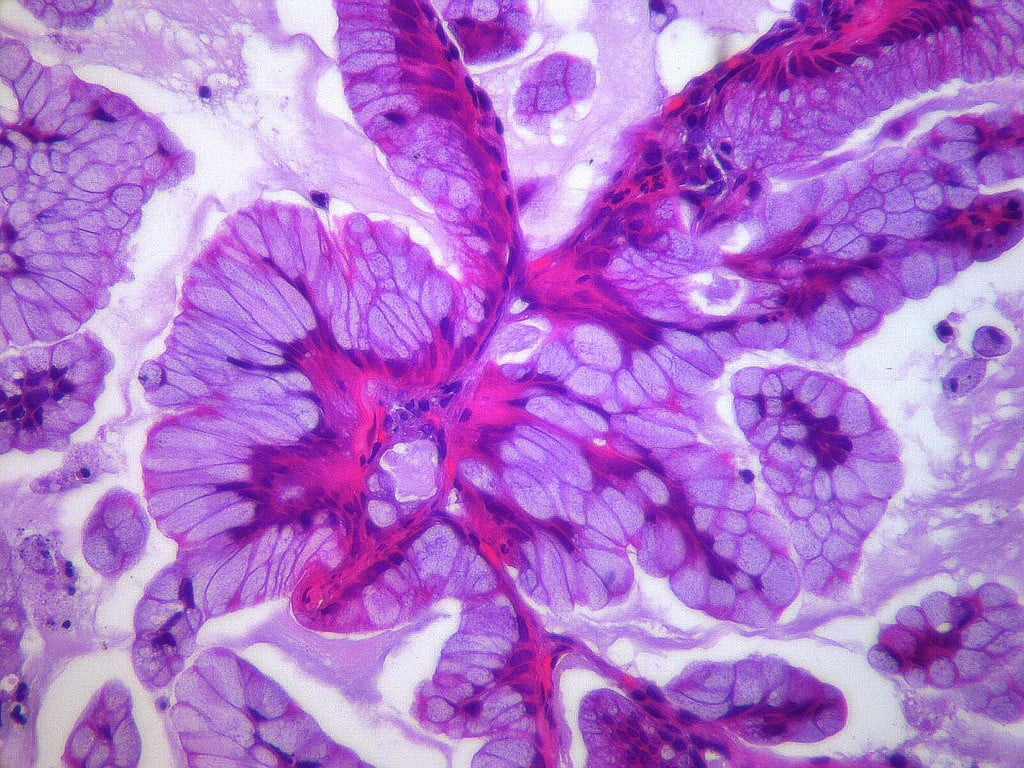![]() March 5, 2018 | Israeli startup Nucleai, which is currently developing an artificial intelligence-based system that assists pathologists in the diagnosis of diseases like cancer in a more efficient manner, today announced a $5 million seed round, according to a statement. The round was led by Israeli-based VC funds Vertex Ventures Israel and Grove Ventures as well as private investors Brian Cooper, founder of Retalix, and serial entrepreneur Nir Kalkstein, co-founder of Final and Medial Early Sign. “We are excited to partner with Nucleai’s impressive and experienced entrepreneurial team”, said Emanuel Timor, General Partner at Vertex. “Nucleai will dramatically improve the accuracy and efficiency of pathologists. We believe that Nucleai has the vision and ability to leverage recent breakthroughs in Artificial Intelligence technologies and become the global leader in digital pathology.” Clinical pathology is a medical specialty which diagnoses a disease based on laboratory analysis of bodily fluids or tissues and cells. Today, most diseases are diagnosed by pathologists. Nucleai is a company that works to “improve the efficiency of pathologists, therefore shortening the patient’s wait time for a diagnosis and reducing fatal errors,” according to the statement. The company was founded in 2017 by Avi Veidman, Eliron Amir, and Lotan Chorev, who are the firm’s current CEO, CTO, and VP of R&D, respectively. All three served together in the elite technological unit 9900 of the Israeli intelligence corps, specializing in computer vision. “Utilizing Artificial intelligence in the pathology domain holds great potential—state of the art technology has allowed us to obtain results that until recently, were considered impossible. We recently presented our results to a number of pathologists and their responses were enthusiastic,” said Veidman. “We have teamed excellent investors and partners who are embarking with us on a challenging journey to improve patient care and save lives.” Nucleai also develops solutions for prostate, breast and gastrointestinal-related diseases. They plan to use their funds to recruit experienced machine learning researchers to speed up development.
March 5, 2018 | Israeli startup Nucleai, which is currently developing an artificial intelligence-based system that assists pathologists in the diagnosis of diseases like cancer in a more efficient manner, today announced a $5 million seed round, according to a statement. The round was led by Israeli-based VC funds Vertex Ventures Israel and Grove Ventures as well as private investors Brian Cooper, founder of Retalix, and serial entrepreneur Nir Kalkstein, co-founder of Final and Medial Early Sign. “We are excited to partner with Nucleai’s impressive and experienced entrepreneurial team”, said Emanuel Timor, General Partner at Vertex. “Nucleai will dramatically improve the accuracy and efficiency of pathologists. We believe that Nucleai has the vision and ability to leverage recent breakthroughs in Artificial Intelligence technologies and become the global leader in digital pathology.” Clinical pathology is a medical specialty which diagnoses a disease based on laboratory analysis of bodily fluids or tissues and cells. Today, most diseases are diagnosed by pathologists. Nucleai is a company that works to “improve the efficiency of pathologists, therefore shortening the patient’s wait time for a diagnosis and reducing fatal errors,” according to the statement. The company was founded in 2017 by Avi Veidman, Eliron Amir, and Lotan Chorev, who are the firm’s current CEO, CTO, and VP of R&D, respectively. All three served together in the elite technological unit 9900 of the Israeli intelligence corps, specializing in computer vision. “Utilizing Artificial intelligence in the pathology domain holds great potential—state of the art technology has allowed us to obtain results that until recently, were considered impossible. We recently presented our results to a number of pathologists and their responses were enthusiastic,” said Veidman. “We have teamed excellent investors and partners who are embarking with us on a challenging journey to improve patient care and save lives.” Nucleai also develops solutions for prostate, breast and gastrointestinal-related diseases. They plan to use their funds to recruit experienced machine learning researchers to speed up development.
Related posts

Israeli AI Safety Tool Among TIME’S Best Inventions For 2024

TAU Team Discovers Mechanism To Eliminate Cancerous Tumors

Ashdod Port Investing In Startups As Part Of Innovation Strategy




Facebook comments